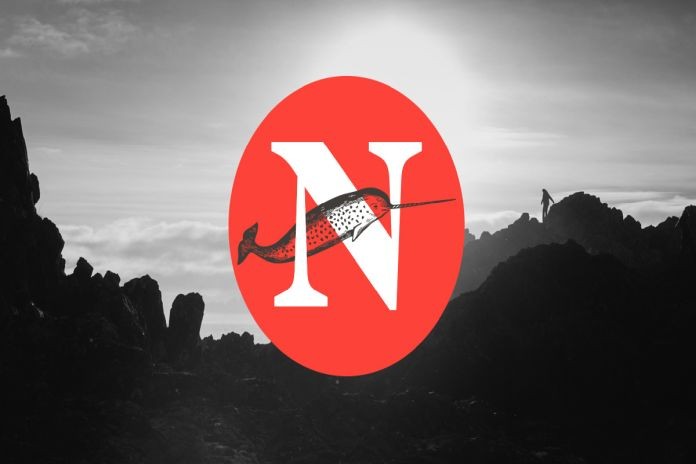VANCOUVER, Canada – The Narwhal and award-winning photojournalist Amber Bracken have filed a lawsuit in British Columbia’s Supreme Court against the Royal Canadian Mounted Police (RCMP) for the violation of their Charter rights after Bracken was wrongfully arrested and detained while covering the enforcement of an injunction in Wet’suwet’en territory as a journalist in late 2021.
“Amber Bracken’s arrest and lengthy detention by the RCMP not only defied logic, but we believe it broke the law,” said Emma Gilchrist, editor-in-chief and co-founder of The Narwhal.
“In a democratic society, those in positions of authority must always be held accountable for their actions. The arrest of Amber Bracken is part of a troubling pattern of RCMP infringing on press freedom,” Gilchrist said. “To not move forward with this case would be to turn our backs on all of the important stories that happen in remote places without the watchful eyes of journalists, due to the chilling effect of arrests like these.”
The Narwhal and Bracken are suing for damages related to the RCMP’s arbitrary arrest and detention. The lawsuit is also seeking acknowledgment that The Narwhal and Bracken’s press freedom rights, pursuant to Section 2(b) of the Charter, were breached.
On November 19, 2021, Bracken was on assignment for The Narwhal when she was arrested by the RCMP while covering the contentious construction of the Coastal GasLink pipeline through unceded Wet’suwet’en territory. The construction project has been opposed by hereditary leaders of some of the nation’s clans with some members, and their supporters, being involved in activities to protest the construction of the pipeline.
At the time of Bracken’s arrest, Coastal GasLink, operated by TC Energy, was working under the terms of a BC Supreme Court injunction that allowed the private company unimpeded access to construct the pipeline on the unceded territory of the Wet’suwet’en.
The lawsuit’s notice of claim describes a harrowing incident during which RCMP officers used an axe and chainsaw to break through the door of a tiny house where Bracken was working and then arrested her and six other individuals at gunpoint. She, along with documentary filmmaker Michael Toledano, were charged with contempt for violating the terms of the injunction and jailed for three days before being released on bail. The incident garnered international headlines.
“Police put me in handcuffs when I should have been doing my job,” Bracken said. “I wanted to be doing my job.”
Bracken’s arrest was swiftly condemned by press freedom groups, including the Canadian Association of Journalists (CAJ), who issued a statement demanding the RCMP release Bracken and Toledano from police custody, with their belongings.
Days later, the CAJ spearheaded a wide coalition of news organizations and press freedom groups to issue a public letter to Marco Mendocino, Canada’s federal minister of public safety, with copies also sent to RCMP Commissioner Brenda Lucki, Mike Farnsworth, B.C.’s solicitor general and minister of public safety, and Prime Minister Justin Trudeau decrying how the RCMP acted beyond the law in dealing with members of the media and in defiance of recent court rulings.
In Canada, journalists are afforded special protections while engaged in the process of gathering news.
According to the 2019 landmark decision rendered by Justice Derek Green in the so-called ‘Brake case,’ members of the media should not be arrested for contempt – even within injunction zones – when reporting on matters of public interest so long as they do not directly participate in unlawful activity.
The Narwhal had notified the RCMP that Bracken was reporting in the area the day before her arrest. Bracken informed the arresting officers she was a journalist, carried her letter of assignment from The Narwhal and had affixed ‘media’ badges to her equipment bags. Bracken raised the Brake case and its principles with the arresting officers, but they said they were not familiar with the decision.
Brent Jolly, president of the CAJ, said practices and protocols should have been in place to ensure that officers who enforce injunctions are adequately briefed prior to being sent out into the field.
“Canada is a land of laws and rules,” Jolly said. “There are important legal precedents, as well as principles grounded in our Charter of Rights and Freedoms, that serve as the foundation for a free press in Canada. Efforts to feign ignorance and to turn a blissfully blind eye to this entire reality is disillusioning and not a justifiable excuse for ever breaching a journalist’s constitutional rights.”
While the CAJ is not formally part of the lawsuit against the RCMP, it strongly supports Bracken and The Narwhal’s efforts to seek justice and reparations for the direct violations of the law.





